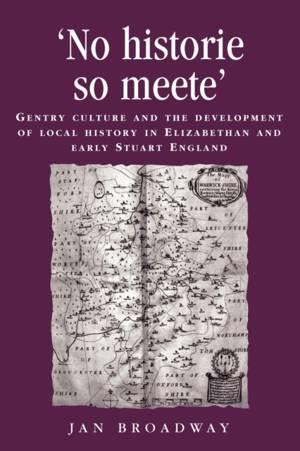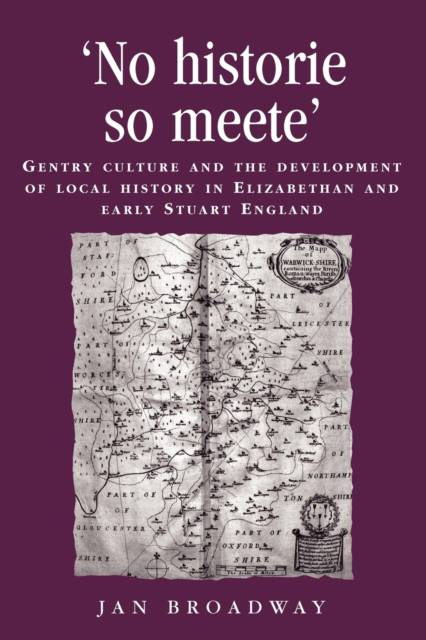
- Retrait gratuit dans votre magasin Club
- 7.000.000 titres dans notre catalogue
- Payer en toute sécurité
- Toujours un magasin près de chez vous
- Retrait gratuit dans votre magasin Club
- 7.000.000 titres dans notre catalogue
- Payer en toute sécurité
- Toujours un magasin près de chez vous
'No Historie So Meete'
Gentry Culture and the Development of Local History in Elizabethan and Early Stuart England
Jan Broadway
48,45 €
+ 96 points
Description
This book explores the importance of history to Elizabethan and early Stuart gentry and how this led to a vibrant antiquarian culture. The family, town and county histories written by the community, which form the core of the study, had an influence on the development of local history in England which lasted into the twentieth century and is still felt today.
Eschewing a narrow historiographical approach, the author examines a range of manuscript and published works and other material reflecting the gentry's interest in the past: pedigree rolls, antiquarian notebooks, heraldic displays and maps. The book provides a survey of the development of local history in England from its medieval origins to 1660. This is followed by chapters on the practicalities of local historical research: the national educational and institutional framework, the development of regional networks of local historians and the gentlemen who controlled access to their sources, and analysis of the source materials available. The final section features chapters on genealogy, didacticism and the physical world.Spécifications
Parties prenantes
- Auteur(s) :
- Editeur:
Contenu
- Nombre de pages :
- 264
- Langue:
- Anglais
- Collection :
Caractéristiques
- EAN:
- 9780719072956
- Date de parution :
- 01-11-12
- Format:
- Livre broché
- Format numérique:
- Trade paperback (VS)
- Dimensions :
- 156 mm x 234 mm
- Poids :
- 381 g







